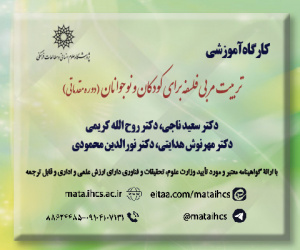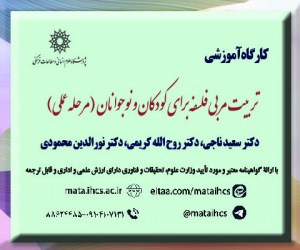امکان سنجی ارتکاب نسل کشی در غزه توسط اسرائیل در پرتو عملیات طوفان الاقصی (7 اکتبر 2023) (مقاله علمی وزارت علوم)
درجه علمی: نشریه علمی (وزارت علوم)
آرشیو
چکیده
عملیات طوفان الاقصی در 7 اکتبر 2023 توسط شاخه نظامی حماس، اقدام نظامی بی سابقه ای در مناقشه طولانی مدت اسرائیل و فلسطین محسوب می شود. هرچند می توان اقدام حماس را بر پایه وضعیت اشغال و حق تعیین سرنوشت توجیه کرد اما پاسخ اسرائیل به این عملیات، گسترده، ویرانگر و بی سابقه بوده است؛ به نحوی که نمی تواند منطبق با دفاع مشروع قلمداد شود. کشتار هزاران نفر انسان های بی گناه غیرنظامی، استفاده از سلاح های ممنوعه، تخریب مراکز پزشکی، بیمارستان ها و فروپاشی نظام سلامت، محاصره همه جانبه غزه و عدم دسترسی مردم به کالاهای حیاتی موردنیاز ازجمله غذا، آب و دارو که عملاً گسترش قحطی را در پی داشته است، تخریب خانه ها و وادار کردن مردمان شمال غزه به کوچ اجباری به مناطق دیگر، بخشی از قساوت های آشکار اسرائیل است که می تواند به عنوان رکن مادی جرم نسل کشی، مورد ارزیابی قرار بگیرد. این مقاله به شیوه توصیفی، تحلیلی و در پرتو گزارش های رسمی، دکترین و رویه قضایی بین المللی به این پرسش پاسخ می دهد که آیا ارکان مادی و معنوی نسل کشی (قصد خاص) در پرتو عملیات نظامی اخیر اسرائیل علیه فلسطینیان (مردم غزه) محقق شده است؟ مقاله نتیجه می گیرد که در پرتو اقدام های انجام شده توسط اسرائیل، رکن مادی، به ویژه قتل اعضای گروه و همچنین رکن معنوی جرم نسل کشی در عملیات طوفان الاقصی (7 اکتبر 2023)، توسط اسرائیل محقق شده است؛ به گونه ای که دیوان کیفری بین المللی می تواند در این مورد، صلاحیت خود را اعمال کند.The possibility of committing genocide in Gaza by Israel in the light of the Al-Aqsa storm operation (October 7, 2023)
The Al-Aqsa Storm operation on October 7, 2023, carried out by the military branch of Hamas, namely Al-Qassam, represents an unprecedented military action in the longstanding Israeli-Palestinian conflict. While Hamas's actions may be justified based on the occupation and the right to self-determination, Israel's response to this operation has been extensive, devastating, and unprecedented, to a degree that cannot be considered legitimate defense. The killing of thousands of innocent civilians, the use of prohibited weapons, the destruction of medical centers and hospitals, the collapse of the health system, the all-encompassing siege of Gaza, and the lack of access to vital goods such as food, water, and medicine have led to widespread famine. The destruction of homes and the forced displacement of the people of northern Gaza to other areas are among the blatant atrocities committed by Israel, which could be assessed as the actus reus element of the crime of genocide.
This article seeks to address whether the actus reus and mens rea elements of genocide (specific intent) have been met in light of recent Israeli military operations against the Palestinians (the people of Gaza). Through a descriptive and analytical examination of official reports, doctrine, and international jurisprudence, it concludes that, based on Israel's actions, especially the killing of members of the group, both the actus reus and mens rea elements of the crime of genocide in the Al-Aqsa Storm operation on October 7, 2023, have been fulfilled in a manner that establishes grounds for the jurisdiction of the International Criminal Court. Consequently, the International Criminal Court could exercise its jurisdiction in this case.
The people of Gaza are an integral part of the Palestinian nation and government, united by a common and historic goal and struggle for liberation from occupation and colonization. Their shared nationality, ethnicity, and religion, as well as their continuity of goals, align them as a group protected under the Genocide Convention of 1948 and the Statute of the Court (6).
In addition to the deaths of Palestinians resulting from Israel's military actions, they face immediate risks of starvation, lack of water, and disease due to Israel's enduring blockade, inadequate aid distribution, and extensive restrictions on essential resources caused by the destruction of Gaza's infrastructure due to Israeli attacks. The coordinated and consistent statements of Israeli authorities, operationalized through military orders, serve as compelling evidence of intent.
The pattern of Israeli attacks and actions against the Palestinian population in Gaza since October 7, 2023, including collective punishment, forced disappearances, and the use of famine, water, electricity, and fuel cuts as tools of war, along with public statements by high-ranking Israeli government and military officials, collectively indicate Israel's genocidal intent. The behaviors, circumstances, and presumptions used by ad hoc international criminal tribunals to establish the specific intent of genocide align with the actions of Israeli authorities and can serve as a legal basis for potential proceedings against them.
Currently, the court's prosecutor, Karim Khan, has emphasized the importance of investigating the situation in Gaza, ensuring justice for the victims, and upholding the rule of law. While the prosecutor's actions have been articulated in a series of speeches and not as official actions, no preventive statement regarding Gaza has been issued by the court prosecutor. Member states of the Court, such as South Africa, Bangladesh, Djibouti, Bolivia, and the Comoros Islands, have recently referred the situation in Gaza to the Court, citing genocide as one of the concerns. However, due to the cautious approach of the prosecutor, an official decision regarding genocide does not appear imminent. Nonetheless, a provisional order issued by the International Court of Justice in the case of South Africa against Israel concerning the genocide of the people of Gaza, based on the Convention on the Prohibition and Punishment of Genocide, could potentially alter the court prosecutor's cautious stance.



